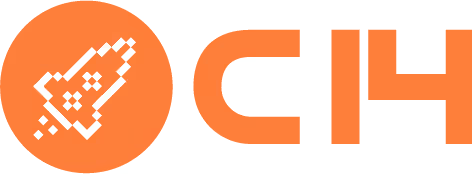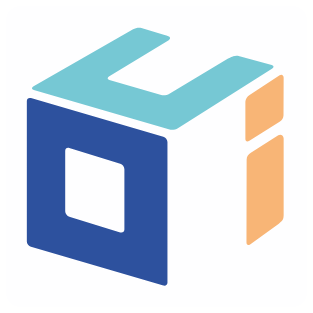
HashLog
Hashlog is a data verification service that leverages the Hedera Consensus Service (HCS) to create immutable events or data logs. It enables applications and enterprises to submit messages to the HCS, where each message receives a consensus timestamp from the Hedera network, ensuring its integrity and order. This process provides a secure and transparent "proof-of-action" or "proof-of-event" capability.
Its core functionality offers a data trail for on-chain information. Once data is logged via Hashlog to the HCS, it cannot be altered or retrospectively tampered with, providing a high degree of data integrity. This is particularly useful for use cases requiring regulatory compliance, dispute resolution, or the tracking of critical operational processes. Developers integrate Hashlog systems using APIs or SDKs.
By utilizing Hedera, Hashlog provides decentralized trust, cryptographic verification, and public accessibility (if desired) for the logged information. Its applications span across multiple domains, including supply chain management for tracking goods, IoT data streams for device event verification, and legal tech for timestamping documents.
Project Information
Related Projects

C14 is a financial technology company that provides a seamless fiat-to-crypto on-ramp solution for developers building on the Hedera blockchain network. Its core product is an easily embeddable widget that decentralized applications (dApps), wallets, and marketplaces can integrate directly into their platforms.
With C14's widget, users can purchase digital assets directly within the dApp they are using, employing familiar payment methods like credit or debit cards. The platform handles the entire transaction flow, including regulatory compliance aspects like Know Your Customer (KYC) checks, and delivers the purchased assets directly to the user's connected wallet. This creates a simple, "one-click" experience that significantly lowers the barrier to entry for mainstream adoption.

Joget is an open-source no-code/low-code application development platform designed to empower users, from citizen developers to professional programmers, to build, integrate, and orchestrate enterprise-grade applications and automate workflows with minimal coding. The platform focuses on accelerating digital transformation by simplifying application development and enabling faster delivery of solutions across various industries.
A key aspect of Joget's offering is its specific support for blockchain and digital ledger technology (DLT) applications through its integration with the Hedera blockchain network. This is facilitated by the Hashgraph Application Studio, a version of Joget tailored for the Hedera ecosystem, and the Hedera Ledger Pack plugin. These tools enable users to visually design and deploy decentralized applications (dApps) on Hedera, simplifying interactions with Hedera services like the Hedera Consensus Service (HCS) and Hedera Token Service (HTS) for tasks such as account creation, asset transfer, and token management, directly from within the Joget environment.
Beyond its blockchain capabilities, Joget provides visual drag-and-drop interfaces for UI and process design, AI-powered development features, pre-built integrations, and an extensible plugin architecture. This allows organizations to improve time-to-market, achieve cost efficiencies, and enhance operational flexibility for a wide range of enterprise applications.

Object Computing, Inc. (OCI) is a technology consulting company founded in 1993 and based in St. Louis, Missouri. It specializes in designing and building custom software solutions for enterprise clients across various industries, including defense, aerospace, financial services, and healthcare.
OCI's services span the entire software development lifecycle, from strategy and design to implementation and support. The company offers expertise in a wide range of technologies, including real-time and embedded systems, cloud computing, machine learning, and the Internet of Things (IoT). A significant part of their work involves helping organizations modernize their legacy systems and adopt new technologies to improve efficiency and drive innovation. They also create and sponsor multiple open-source projects, most notably Grails, a popular web application framework based on the Groovy programming language.
Object Computing leverages its extensive experience in enterprise software to help organizations build and integrate solutions on the Hedera network. OCI provides consulting, training, and development services specifically for Hedera, enabling businesses to utilize the platform for applications requiring high throughput, security, and auditable data logging.

Tolam Earth is a Web3 marketplace and data utility platform engineered to enhance the efficiency, transparency, and credibility of the Voluntary Carbon Market (VCM). Launched as a joint venture with backing from the HBAR Foundation, Tata Consultancy Services (TCS), and Object Computing, Tolam directly addresses critical market challenges such as price opacity, illiquidity, and concerns over the integrity of carbon credits.
Built on the Hedera network, the platform provides a marketplace for corporate buyers and carbon project developers to transact in Digital Environmental Assets (DEAs). It leverages the Hedera Token Service (HTS) to represent carbon credits as unique tokens and the Hedera Consensus Service (HCS) to create a publicly verifiable and immutable audit trail for all transactions and credit retirements. This ensures a high degree of trust and transparency for all participants.
A core component of the platform is its "mitigation engine," which employs sophisticated matching algorithms. This engine helps corporate buyers discover and purchase carbon offsets that align precisely with their specific Environmental, Social, and Governance (ESG) goals, considering factors like project type, geographical location, and additional community or biodiversity co-benefits.
